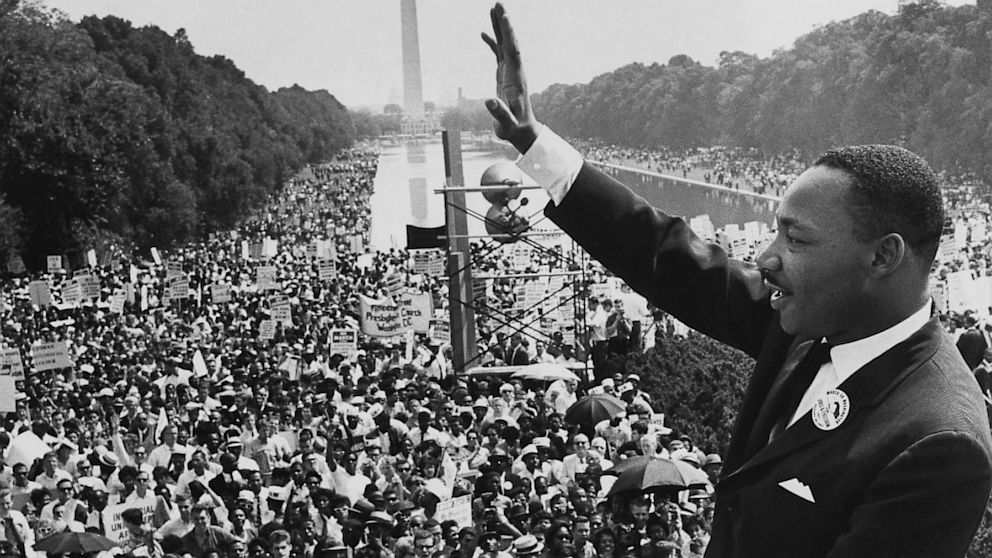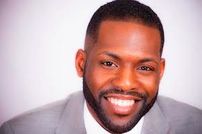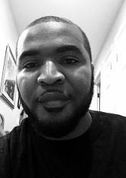|
In quick succession our country has cycled through new phenomena like "election trauma" and, now, what some are calling "executive order fatigue." We've been told we should get used to this abrupt shock to the system and that this is what we were promised. That may be, but I also have heard from a number of people who voted for President Trump with far different hopes from the current chaos – hopes for betterment like new jobs, better healthcare, and less government oversight. Those people express significant dissatisfaction with the current status. Instead, all voters have been discovering the extent to which people in the current administration purposely set out to induce severe stress on American citizens. While such extreme stress is not new, and sadly has happened before in our country and around the world, for a vast majority of citizens it is not acceptable. Thankfully, many people, across faith traditions, professional sectors, socio-economic backgrounds, and political aisles have worked hard and are continuing to work hard to ensure basic civil liberties are upheld throughout American territories. Further, many congregations and faith communities around the country have been sanctuaries to incubate these actions for the health and well-being of our nation. Clearly, there's a ways to go, though. To better understand the impacts of recent brash actions by national government, not only on refugees and migrants but on civic officials as well, hear the words of Democrat Washington State Governor and multiple Republican Senators. The ongoing severe stress citizens in your community and around our country are experiencing will not dissipate easily, especially without intentional corporate and neighborly care. Toward this relief and to help counter impacts of stress and hate, some faith communities have offered vigils (including Texas, Arkansas, and California, to name a few), created interactive prayer stations of the cross, and made clear statements about how current executive orders are injurious to communities. Practical, embodied care like these acts makes a tremendous difference in lifting spirits and generating collective repair. How is your congregation responding this week? Share what has been most helpful to your community in the comments. Would you like more resources on how to assess impacts of stress and trauma and to practice effective care? You can find them at the ICTG online training menu. Rev. Dr. Kate Wiebe is a pastoral psychotherapist, congregational care consultant, and the Director of the Institute for Congregational Trauma and Growth.
0 Comments
Throughout my childhood I had a vivid imagination and dream life. Like most kids, I developed the ability to have rich dreams that became increasingly complex. Thankfully, as these dreams increased in their complexity, rarely did they result in nightmares or night terrors. It wasn’t until my late teens that I realized how my subconscious mind through my dreams would solve problems I was presently faced with. If I were wrestling with a decision, it seemed that through an intense dream I’d receive the clarity I needed to make a choice. As a result, I’ve found that when faced with a personal or professional challenge — after sorting through the facts — more often than not, if I give my body and mind permission to rest, the solution will rise to my conscious mind. But, two years ago I stopped dreaming. Actually, I stopped recalling my dreams. Gone were the brilliant colors and picturesque scenes. Instead, I’d awake from hazy images of gray that I could not comprehend. My wild dreams that once served as a welcomed respite were no longer accessible. Psychologists note that dreams may be repressed due to trauma, stress, or anxiety. And, it seems the sudden loss of my father was the trauma that resulted in my inability to recall my dreams. My bold imagination had shifted dramatically. In truth, trauma may impact our psyche to the extent we experience heightened anxiety, increased irritability, lethargy, or emotional detachment. It can result in weight loss or gain or an increased vulnerability to fear. Trauma is real and its impacts cannot be underestimated. Then, we are challenged to consider how we promote national healing, racial reconciliation, and congregational health in trauma-filled communities. Trauma-filled communities — a designation slowly gaining credence among trauma experts — are communities categorized as having high crime rates and a lack of resources. As a result of deindustrialization, high local unemployment and political disenfranchisement, the landscape decays making life appear lackluster. The sight of trash-scattered sidewalks and abandoned buildings clouds the senses to the possibilities alive around residents. Indeed, dreams may be deferred because of personal, professional, or communal trauma. However, the biblical account of the character Joseph provides comfort for those who have lost the ability to dream or recall their dreams due to trauma. In the story, God dreams a dream in the young man living within a context that is not conducive for dream growth. He’s favored by his father and hated by his brothers. Tested in a context with an uneasy admixture of love and hate, he’s affirmed by the one from whom he came but rejected by his kin. Joseph is favored and hated. But, what God dreams through the favored-hated one is reason enough for us to celebrate. In his dream life he sees himself in a better state of being in comparison to his brothers and parents. Sadly, disgusted and intimidated by the possibility of the reality of his dream, his brothers hate and conspire against him as his father deflates his dreams of grandeur. That God would dream not one, but two dreams in a community that is unable to steward dream development is puzzling to me. Even more, that God would reveal divine plans in a climate where love and hate coexist, admittedly, causes me to question God’s methodologies. What is it about the soil of love and hate that serve as good ground for dream planting? With that, why would vivid imaginations and complex dreams arise within the company of dream snatchers? I contend dream snatchers are people who seek to undervalue the dreams of another person because of their own feelings of insecurity and fear. They are those who dismiss and crush God’s dream through someone else. Indeed, Joseph's family members were dream snatchers. The iconic “I Have a Dream Speech” delivered at the Lincoln Memorial by Rev. Dr. Martin Luther King Jr., is both poetic and prophetic. Speaking poignantly to the injustices of his day, he grappled with the reality of the Emancipation Proclamation and the contradicting reality of the continued captivity of African-Americans as a result of segregation and discrimination. While the Declaration of Independence guaranteed the unalienable rights of life, liberty and pursuit of happiness, it seemed this was only extended to people were not of the African diaspora. It was in the soil of love and hate that God dreamed this dream in Rev. Dr. King Jr.. In other words, while the white majority loved how black mothers and grandmothers cared for their children, cleaned their homes, cooked their meal, and washed their clothes — they nonetheless hated their black skin. The soul in their voice and rhythm in their hips was welcomed entertainment, but the rich texture of black hair and resilience in their eyes was something to tame. Because the soil is still fertile with love and hate, oppression and injustice, God still dreams. Though we live in a present nightmare where George Zimmerman was acquitted in the murder of Trayvon Martin, and there were non-indictments in the deaths of Eric Garner and Tamir Rice, we continue to believe the dream God is dreaming in us. The nightmare began when our ancestors were stripped of their African garments, loaded on ships and packaged like sardines. The nightmare continued as those who survived the voyage across the Atlantic were sold as beasts on auction blocks. White supremacist ideologies want us to forget the atrocities of the Trans-Atlantic slave trade. They want us to forget that we are haunted by the ghosts of cotton fields, slave quarters and lynchings. Sadly, this was no dream. Antagonists want us to forget those who were whipped, amputated, boiled in oil, separated and sold across the country. It’s prevailing principalities and powers that tell us to get over these injustices and atrocities. Get over Trayvon Martin, Sean Bell, Amadu Diallo, Mike Brown, and Sandra Bell, they contend. No! We can’t just get over these or any other lives stripped from our communities. For, these lives are buried in the soil of love and hate that give rise to our dreams of equality. Just like Joseph’s brothers who became intimidated by his dream, so has America become fearful of our rallying cry that, “Black Lives Matter.” Met with the rebuttal that all lives matter we’ve had to contend with modern day dream snatchers. As an African-American community we’ve had to steady ourselves in the face of well-intentioned but ignorant people. Yes, all lives do matter, and are created in the image and likeness of God. All lives matter — black, white, Hispanic, and Haitian, married, single, divorced, separated, heterosexual and homosexual, republican and democratic lives all matter. Nonetheless, when we cry “Black Lives Matter” it's not to subjugate any other race, but a reminder to oppressive systems that even if they don’t recognize God’s glory upon us, we do. It's a reminder to the world that we’re fearfully and wonderfully made. As Dr. King shared in this letter from the Birmingham jail, “There comes a time when the cup of endurance runs over, and men are no longer willing to be plunged into the abyss of despair.” The rallying cry that black lives matter indicates the cup of our endurance has run over and God is dreaming a dream thru Millennials for this present age. The God given dream through Rev. Dr. Martin Luther King Jr. is the same dream given to the world today. He or she who has an ear, let them hear what the spirit is saying. For the spirit speaks and dreams of a prison system that does more to rehabilitate inmates than use inmates as cheap labor. The spirit dreams through us of the deconstruction of institutionally oppressive systems that promote social, economic, housing and environmental inequities. As Rev. King said, “It is a historical fact that privileged groups seldom give up their privileges voluntarily. Individuals may see the moral light and voluntary give up their unjust posture; but as Reinhold Niebuhr has reminded us, groups tend to be more immoral than individuals.” Therefore, those living and working in the legacy and spirit of Rev. King must continue to dream and advocate for rights actions and outcomes concerning all citizens. This is the dream God continues to dream through us. Dawrell Rich is an author, pastor and public speaker. He is also the founder of Joshua’s House - a youth and young adult leadership organization that focuses on mentoring, community service, health & wellness and education. He has earned a reputation as a compassionate pastor, catalyst for change, and dynamic communicator.
For more information: www.dawrellrich.com Twitter: @dawrellrich FB: dawrellgrich This blog post is the first in a three part series from Jonathan Leonard, a doctoral student at Austin Presbyterian Theological Seminary. The series will highlight the challenges presented by a history of racism in America, the church’s unique position to restore the broken relationship between God and humanity as a result of racism, as well as the church’s historical endorsement of the slave trade, and modern pastoral care practices that allow ministers to acknowledge, discuss, and listen to congregants in a sensitive fashion concerning this weighty issue. A new blog will be posted every month. We hope you will follow along and leave comments below. The image of God within people of African descent has been marred and consistently challenged from the beginning of the American experiment. This has been quite evident throughout the nation’s history. Yet the racism practiced in U.S. history can be seen as a manifestation of humanity’s fall in Genesis 3. In Genesis 1 and 2 God establishes order and proper relationship between Deity and creation and healthy relationships within the created order. Genesis 1:26-27 teaches that God created humanity in His/Her image and likeness. This endowed humanity with an innate dignity and a value. Every human regardless of gender, age, skin complexion, or physical ability is valuable. God gave humanity dominion over the animals of the earth, yet did not give humanity dominion over other humans. The desire to dominate fellow human beings came when humanity chose to move from a position of relationship with God to exultation and centering upon self. This was a veritable Pandora’s Box where sin in many forms manifested. Racism is one such sin that has particularly plagued humanity within recent centuries. Slavery throughout the millennia has had the pernicious characteristics of greed, brutality, and exploitation. The great Greek philosopher Aristotle stated this while questioning the humanity of slaves: For a man who is able to belong to another person is by nature a slave (for that is why he belongs to someone else), as is a man who participates in reason only so far as to realize that it exists, but not so far as to have it himself…other animals do not recognize reason, but follow their passions. The way we use slaves isn’t very different; assistance regarding the necessities of life is provided by both groups , by slaves and domestic animals. Nature must have intended to make the bodies of free men and of slaves different also; slaves’ bodies strong for the services they have to do, those of free men upright and not much use for that kind of work, but instead useful for community life.[1] Aristotle’s animalization of slaves is clearly dehumanizing. It seems to render them as tools, or rather some sort of animated tools. The same way a saw is the extension of its user, so the slave was an animated tool and extension of their master’s will. While slavery in the ancient world was clearly exploitative, it was also strangely egalitarian in that nearly anyone could become a slave in that world. An aristocrat whose city was conquered or an enemy combatant captured on the battlefield could easily become the property of their conquerors. Pirates swarmed the seas and routinely preyed upon ships, islands, and coastlines enslaving people in raids. In the Greco-Roman world, many nationalities and races were represented in the slave markets of the empire. Yet it was during the transatlantic slave trade that slavery would gain a racial component.[1] This would be the first time in Western history where a specific racial group of people became universally tied to perpetual bondage. David Brion Davis writes, “As slavery in the Western world became more and more restricted to Africans, the arbitrarily define black “race” took on all the qualities, in the eyes of many white people, of the infantilized and animalized slave.”[2] The Avalanche The challenge to the image of God in people of African descent in America continues this day and can be witnessed in the various forms of police brutality. In June of 2015 in Austin, Texas, a police dashcam captured a white Austin police officer slamming a slender African-American woman to the ground. The woman’s name was Breaion King, a twenty-six year old elementary school teacher. She was pulled over for speeding, but things quickly escalated which led to her being slammed to the ground and handcuffed in the back of a squad car. Yet it was King’s interaction with another officer in the vehicle that seemed to raise eyebrows even further. King questioned the officer: “Why are you all afraid of black people?” The officer then replied to King’s question stating blacks have “violent tendencies” and “intimidating” appearance. He went on further to state: “Ninety-nine percent of the time … it is the black community that is being violent,” the officer told her. “That’s why a lot of white people are afraid. And I don’t blame them.”[3] These comments started an avalanche in my mind concerning racism, American history, the image of God, and the role of religion in justification of slavery. These comments from the officer are a manifestation of generations of thought formulated in the realms of politics, economics, law, science, and religion. Many Americans are woefully ignorant of the basics of U.S. history such as naming the victorious side in the Civil War, who the U.S. gained independence from, or naming the vice-president.[4] This presents a greater challenge to understanding the historical underpinnings of white supremacist thought and how it undermines the ideals espoused by the country’s founders. How does this link to understanding the image of God and slavery? In the encounter between King and the officer, was the image of God exulted or diminished? (When I refer to the image of God, it is in reference to the image of God in Breaion King and the officer who slammed her as well as the officer who made those comments about African-Americans). Continued...This blog post is the first in a three part series. Read the entire series here: A Diminished Image of God in Europeans, Part II The Image of God and Slavery in America, Part III [1] For more elaboration on the shift from slavery being a status that nearly anyone had the possibility of falling into to the racial component later imposed by Western nations on Africans see David Brion Davis, In the Image of God: Religion, Moral Values, and Our Heritage of Slavery. New Haven: Yale University Press, 2001. See also Milton Meltzer’s work, Slavery: A World History. Chicago: Da Capo Press, 1993. [2] Davis, 128. [3] Michael E. Miller, “Austin police body-slam black teacher, tell her blacks have ‘violent tendencies,” (22 July 2016) https://www.washingtonpost.com/news/morning-mix/wp/2016/07/22/video-austin-police-body-slam-black-teacher-tell-her-blacks-have-violent-tendencies/ (10 August 2016) [4] Americans of all ages seem to fail to answer basic questions about U.S. history. A 2008 study by the Intercollegiate Studies Institute, which surveyed more than 2,500 Americans, found that only half of adults in the country could name the three branches of government. The 2014 National Assessment of Educational Progress (NAEP) report found that only 18 percent of 8th graders were proficient or above in U.S. History and only 23 percent in Civics. (Saba Naseem, “How Much U.S. History Do Americans Actually Know? Less Than You Think.” Smithsonian Magazine http://www.smithsonianmag.com/history/how-much-us-history-do-americans-actually-know-less-you-think-180955431/ (10 August 2016). Jonathan Leonard currently works for Safe Alliance, a 501(c)(3) based in Austin, Texas, which serves victims of domestic violence and children who are victims of neglect and abuse. Jonathan has worked in the non-profit realm with at-risk youth for nearly 10 years. He holds an M.Div and M.A. in Biblical Literature from Oral Roberts University. He is currently pursuing doctoral studies at Austin Presbyterian Theological Seminary. He resides in the Austin area with his wife Tausha and three children, DeAnnah, Jonathan Jr., and Justin.
|
�
CONGREGATIONAL BLOG
From 2012-2020, this blog space explored expanding understanding and best practices for leadership and congregational care.
This website serves as a historical mark of work the Institute conducted prior to 2022. This website is no longer updated. Archives
July 2020
Categories
All
|





 RSS Feed
RSS Feed
